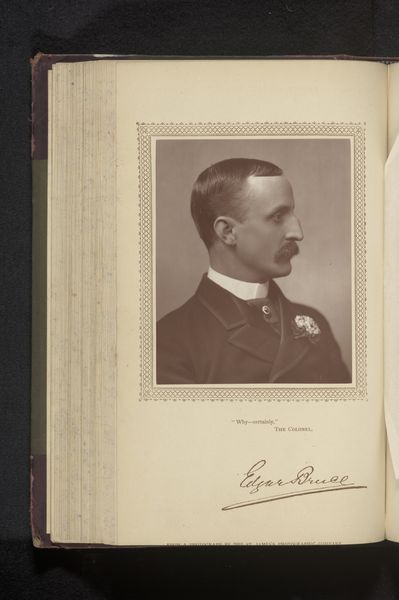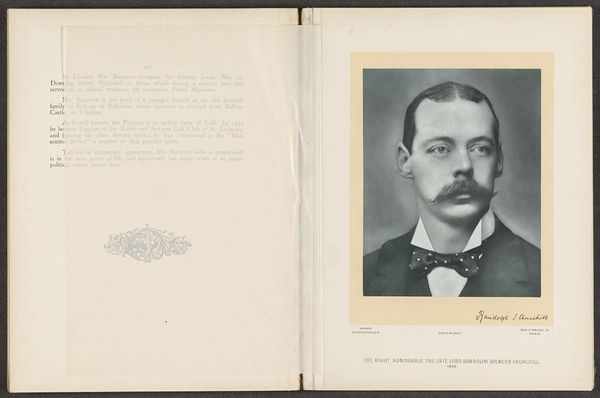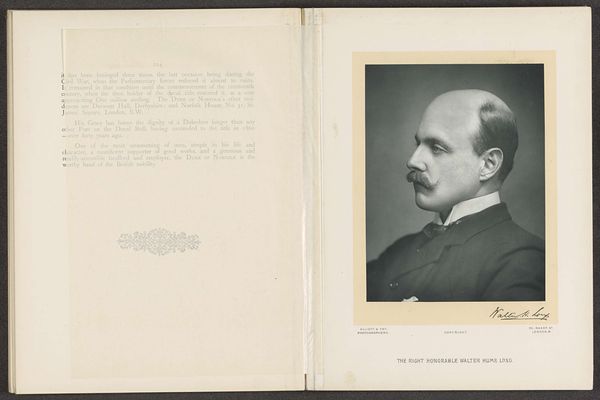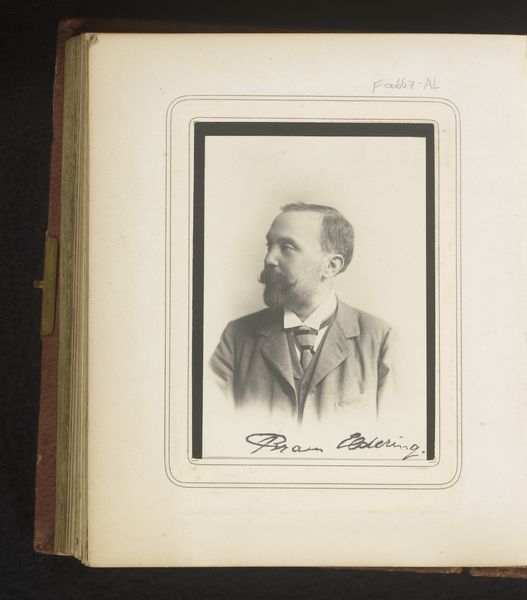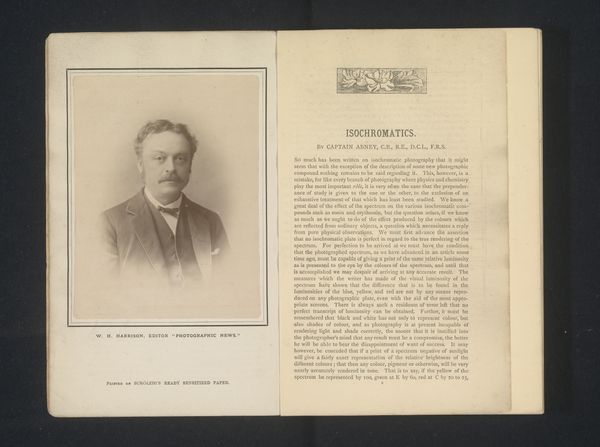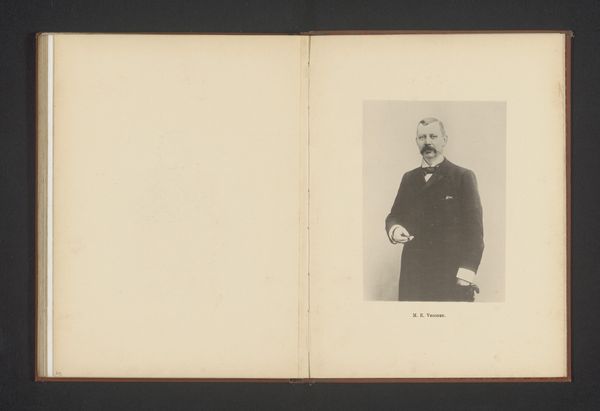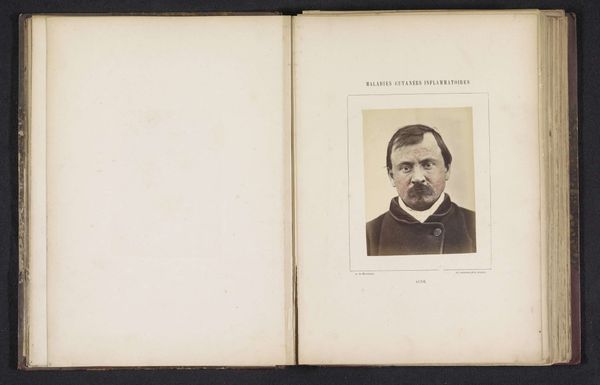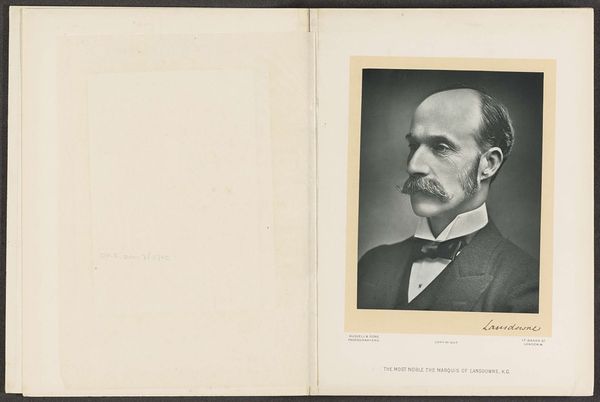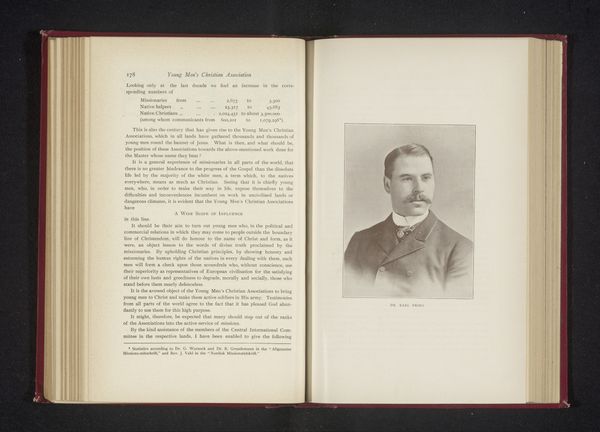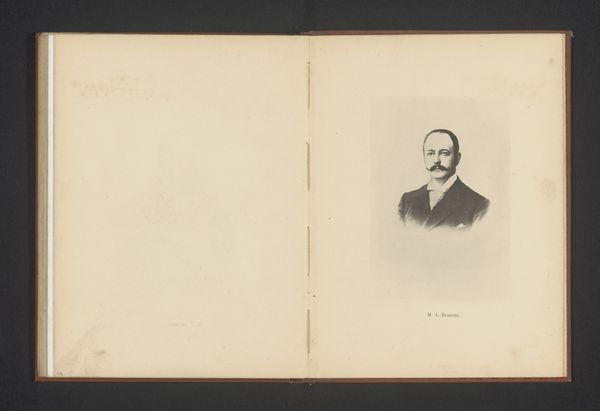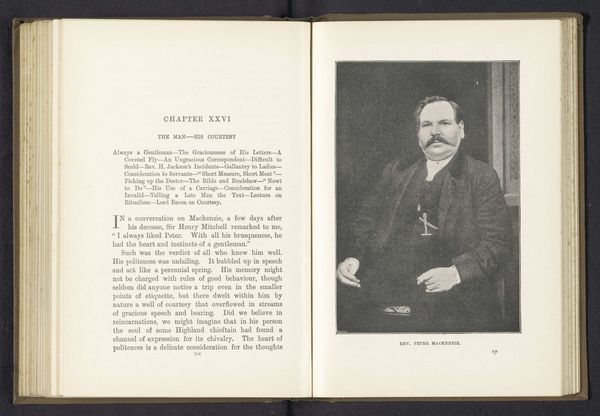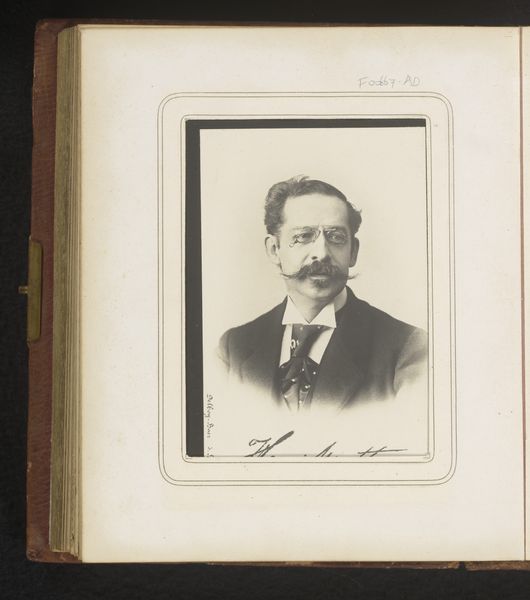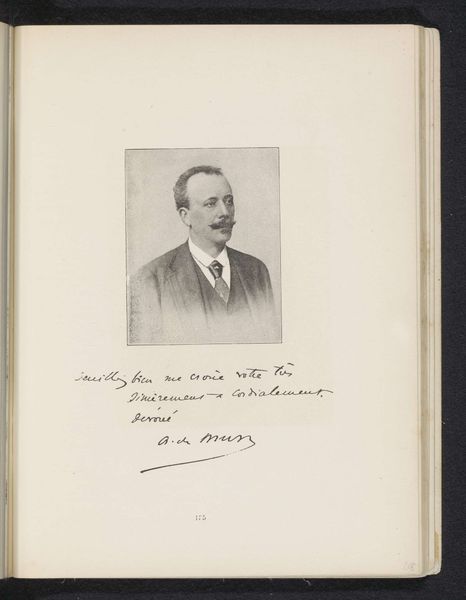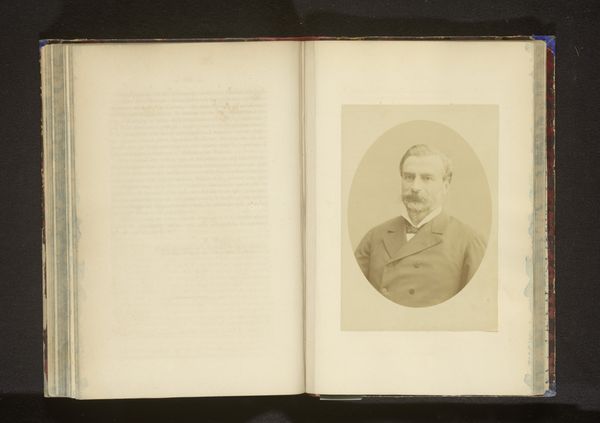
print, photography, gelatin-silver-print
#
portrait
# print
#
photography
#
gelatin-silver-print
#
genre-painting
#
realism
Dimensions: height 184 mm, width 137 mm
Copyright: Rijks Museum: Open Domain
Editor: Here we have a gelatin-silver print, "Portrait of Thomas F. Byrnes," made by Anderson, a firm, before 1886. It's interesting how a photographic process, usually intended for documentation, is presented with the gravity of a painted portrait. What’s your perspective on a piece like this? Curator: What interests me most here is the means of production. We’re not simply looking at an image, but an artifact of labor, industry, and a specific moment in the development of photographic technology. The gelatin-silver print, by the late 19th century, had become a readily reproducible medium. How does that affect our understanding of Byrnes and his position? Editor: That's a good point. He's not royalty, he’s the subject of a reproducible image. So it’s interesting to think about what motivated him to have it created, and for what audience it was intended. It almost democratizes portraiture, doesn’t it? Curator: Precisely. And that speaks volumes about the changing social dynamics and the rise of a certain kind of public figure. Think of the implications for consumer culture. Who were Anderson’s typical customers? Were they from the upper or middle class, and how did that impact their approach to artistry? Editor: I never thought about portraiture from this perspective before. Considering the means of production really changes my interpretation. Thanks. Curator: Indeed. By focusing on the materials and production process, we gain insight into the cultural forces shaping both the subject and the image itself.
Comments
No comments
Be the first to comment and join the conversation on the ultimate creative platform.
